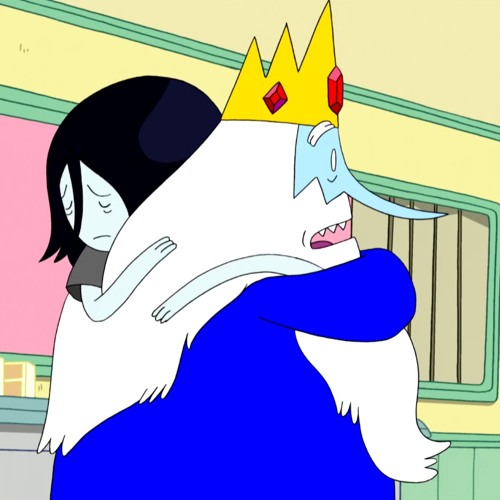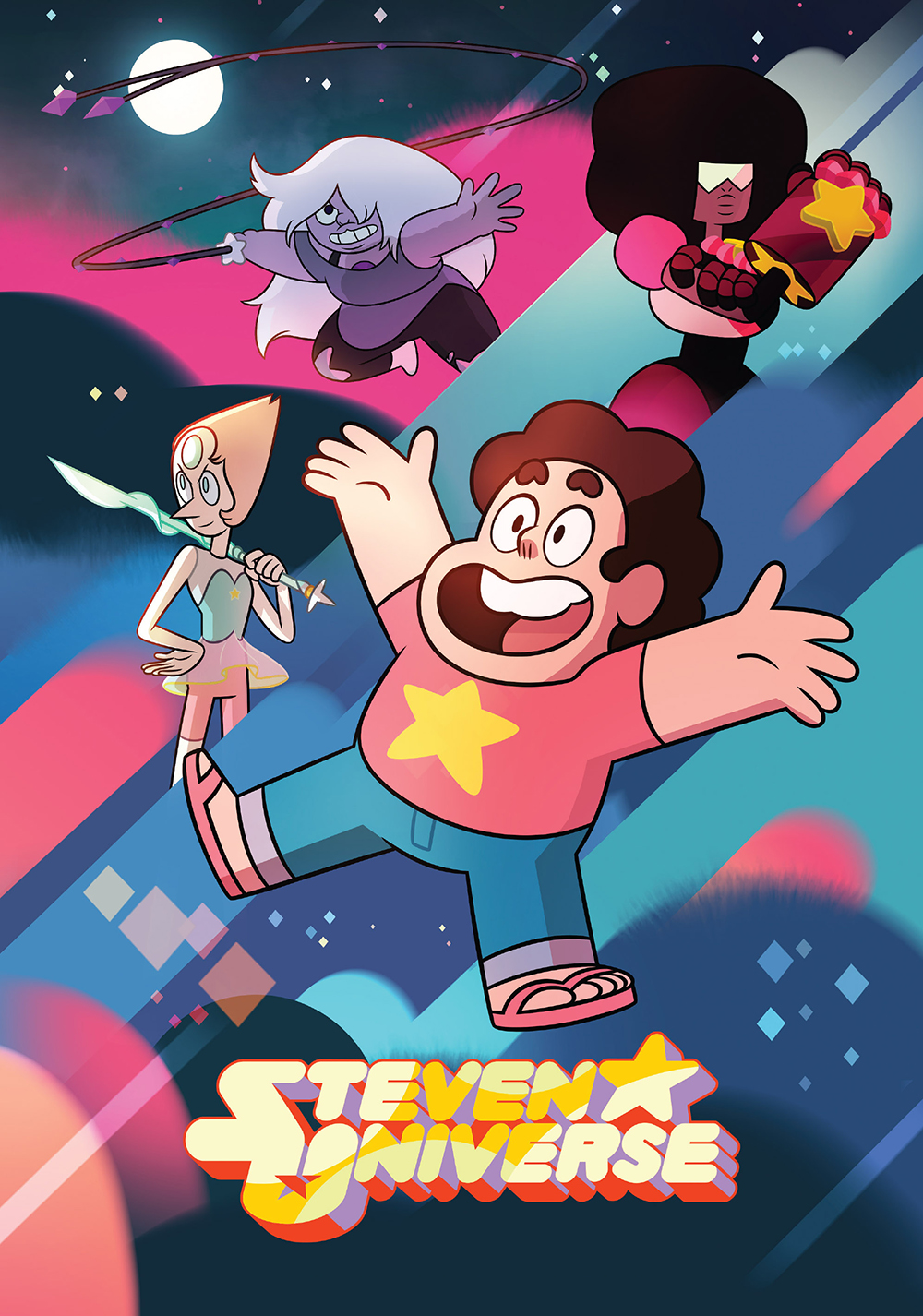Here Comes A Thought...
Lately, I've been pretty fascinated with rewatching media that I would watch when I was younger to see the different significance it holds to me now, many years later. Sure, the nostalgia trip is pretty comforting during some boring nights, but mostly I've been really surprised by all of the themes and messaging that went over my head when I was younger. I might have just been a slow kid, but it feels like almost every cartoon I remember watching when I was in elementary school and middle school carries a new meaning that I don't remember processing, like advice on healthy and mature relationships, or how to deal with grief or trauma.
One of these cartoons was Adventure Time, which infamously was not liked by my mom. I vividly remember her complaining about how all of the cartoons looked like acid trips and that the showrunners were all on drugs, but beyond the trippy visuals and goofy characters, I realized just recently how much effort and passion was put into the show having representation of tons of different people and issues. The main example that comes up when discussing Adventure Time is the nuanced portrayal of the Ice King, who was the weird, goofy main villain of the first season or two. The Ice King was largely written to be a joke character- pretty much all he boils down to at first is being a creepy old man who kidnaps princesses and lamenting how lonely he is. Granted, he is lonely for a reason, but for the most part he is played for laughs. Both the main characters and audience are meant to laugh at him, because why wouldn't you laugh at a creepy weird old man? However, in the third season, he was revealed to have been a normal human being a long time ago. Through a series of video tapes, the audience watches in horror as Simon, a soft-spoken intellectual, slowly loses his mind as he grows addicted to the power of the Ice Crown. While this would have been a cool twist, it gets even more heartbreaking as it is revealed later on that he was a sort of father figure to another character in the show, Marceline, as his mental state continued to deteriorate.From that point onwards, the show stops treating the Ice King as a joke. The main characters make an effort to help him, support him, and befriend him, despite his unstable mental state. Through this, Adventure Time transformed a one-note weird joke character into an analogue for people dealing with mental illnesses like dementia or Alzheimer's, and it provided younger kids a channel to understand and relate to these conditions through cartoons. Even though I didn't really understand the real-world application when I was younger, I did understand that there was nuance to the Ice King's behavior, and I developed empathy for a character I initially laughed at, now aware that he isn't a bad guy, just suffering from a condition. Looking back on it now, I think that it's really admirable that Adventure Time's creators recognized the platform they had, and used it for good to educate children about the nuances of mental illness.
Another cartoon I've given a second viewing recently has been Steven Universe. Admittedly, I didn't really watch it much when I was younger, since I was interested in shows like Adventure Time and Regular Show due to their more masculine tone. I wouldn't say that Steven Universe was quite a "girl cartoon," but it felt distinctly detached from the other cartoons I watched. With hindsight, it's clear that Steven Universe was aimed towards an audience of queer kids (or otherwise non-heteronormative) and I didn't really fit that bill. However, watching it now, I recognize how helpful this show must've been to the development of many adolescents discovering who they were and connecting with others.
Steven Universe follows Steven, who is raised by the 3 Crystal Gems (rock-themed aliens which are all women) as he learns to accept himself and grow through adolescence while fighting other Gem aliens. I almost feel stupid for not catching it when I was younger, but the family dynamic of a boy being raised by three women calls to mind the image of lesbian moms raising a son, which probably helped normalize the concept of same-sex couples and parents to many kids who weren't exposed to that when I was younger. Honestly, I can't really remember when I first learned about the existence of gay people, but I know it was probably towards early middle-school, but I know for a fact that I probably was like "Oh, yeah, I guess that makes sense" thanks to my exposure of representation of same-sex couples from cartoons like Steven Universe.
A scene that really stuck out to me was the musical sequence of "Here Comes A Thought," which is a scene where Garnet teaches Steven and his friend Connie (who is heavily implied to be his romantic interest) about how to maintain a stable relationship with open communication. It's a very simple scene with little visuals, but I felt oddly connected to the song. The song tackles insecurity, anxiety, and how to deal with it. But it's not just for the person feeling anxiety- it also teaches partners in a relationship on how to help your partner deal with these issues as a supportive (but not overbearing) friend. I particularly enjoyed how the "bad thoughts" are visualized as butterflies- it invokes the idea that on their own, they are small, fleeting things that can be ignored, but they can quickly multiply and feel overwhelming. It's very basic and simple imagery, but it's incredibly effective at communicating to kids how they need to tackle these thoughts directly and calmly, and not get overwhelmed by small, silly things. Honestly, I wish I didn't write off this show when I was younger simply because it didn't look/feel like the other cartoons I watched. Scenes like these (and others I don't have the time to mention) would have really helped me as I grew up, and I probably would've developed better emotional maturity/intelligence faster than I did.
This makes me wonder now- are there any cartoons or shows like this for today's kids? I don't really keep up with children's TV nowadays (on account of me being a 20 year old man) but I really hope there are still channels for children today to explore their feelings, develop their intelligence, and learn about how to handle themselves socially. It might not have been that helpful for me at the time, but I'd like to think that subconsciously, I still processed some of the lessons that these shows had. Media should be entertaining, but there should always be a lesson to learn or a message to take away from it, especially for impressionable children.







Comments
Post a Comment